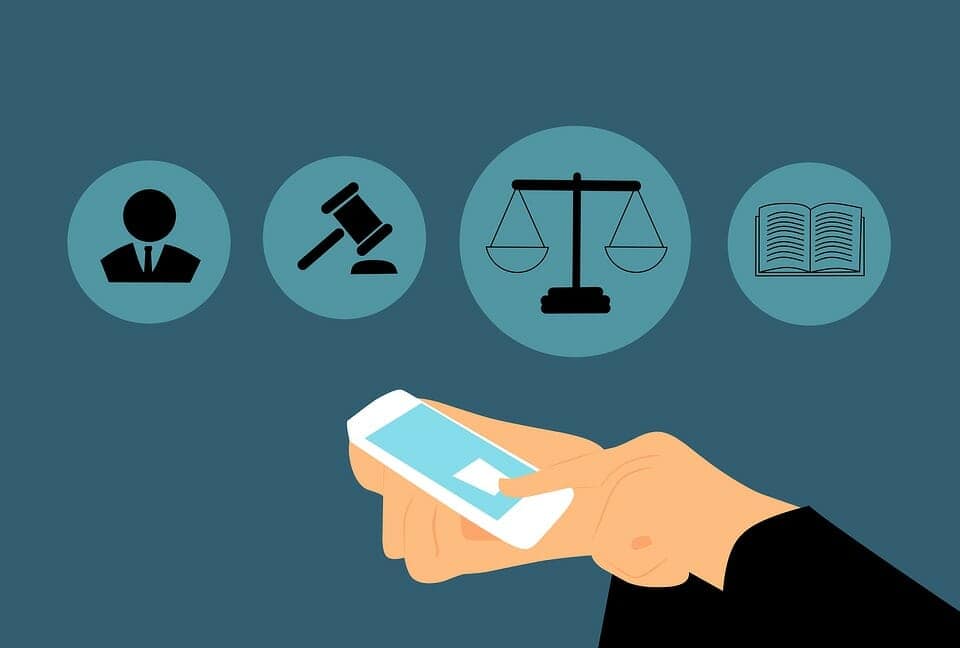How to Know if You Should Pursue a Personal Injury Claim?
It’s not surprising that a large percentage of injured people who call our law firm want to know whether or not they “have a case.” Whether they’ve been injured in a car accident, in a slip and fall, or because of a defective product, their most pressing concern is not to waste anyone’s time, including their own. They want to know whether they should spend time and effort pursuing their personal injury cases. They are often not as concerned about how the whole lawyer representation process works. What they really want to know is: Do I have a case?
It’s important to know that most personal injury claims have specific criteria and time frames, such as proving negligence and adhering to the statute of limitations specific to the state where the injury occurred. While we can’t possibly cover the entire case evaluation process in a short article, here are a few things our team looks for when evaluating a case:
Understanding Personal Injury
Personal injury refers to physical or emotional harm caused by another person’s negligence or intentional actions. A West Virginia and/or Virginia personal injury case can result from various incidents, such as car accidents, slip and fall accidents, medical malpractice, or product liability.
In Virginia and West Virginia, personal injury law allows individuals to file a claim against the responsible party to recover damages for their injuries. A personal injury claim may be filed for various types of injuries, including physical harm, emotional distress, and financial losses. Knowing the basics of personal injury law can help you navigate the process and ensure you take the right steps to protect your rights.
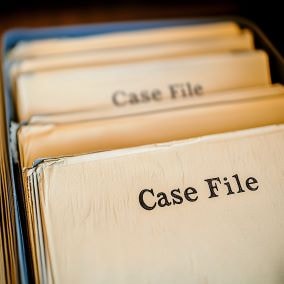
Determining Liability
Determining liability is a critical aspect in evaluating whether you have a personal injury case. Liability refers to the responsibility of the party that caused the injury. In Virginia West Virginia, the liable party can be an individual, a business, or a government agency.
To determine liability, the injured party must prove that the other party breached their duty of care by being negligent or acting intentionally. Negligence can be established by showing that the party failed to exercise reasonable care, resulting in the injury. In some cases, multiple parties may be liable for the injury. For example, in a car accident where there is an injured passenger, more than one driver may be partially responsible for the collision. In such cases, the injured party may be able to file a claim against both parties. Understanding who is liable is essential for building a strong personal injury case and ensuring you receive the compensation you deserve.
Establishing Fault
Establishing fault is a crucial aspect of a personal injury claim. In Virginia West Virginia, the injured party must prove that the defendant was negligent or reckless in their actions, which led to the injury. To establish fault, the injured party must demonstrate that the defendant had a duty of care, breached that duty, and that the breach caused the injury. The plaintiff must also show that they suffered injuries as a result of the accident.
In some cases, the defendant may argue that the plaintiff was partially at fault for the accident. This is known as contributory negligence (Virginia) or comparative fault (West Virginia). In Virginia, if the plaintiff is found to be even 1% at fault, they may not be entitled to recover any damages. Comparative fault in West Virginia is somewhat less strict than contributory negligence, meaning the injured party may recover even if they were partially at fault. Because establishing fault can be a very complex process, it is essential to work with an experienced personal injury attorney who can help with this process.
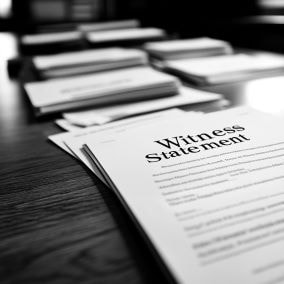
Gathering Evidence
Gathering evidence is a crucial step in building a strong personal injury claim. Evidence can include:
- Medical records and bills
- Police reports and accident scene photos
- Witness statements and testimony
- Expert opinions and reports
- A pain journal evidencing physical pain
- Video and audio recordings
The injured party should collect and preserve all relevant evidence to support their claim. This evidence will be used to establish liability and demonstrate the extent of the injuries. For example, medical records can show the severity of your injuries, while witness statements can corroborate your account of the incident. Witness statements of events preceding the accident and detailing how the accident occurred can help prove a punitive damages claim. The more comprehensive your evidence, the stronger your personal injury claim will be. Comprehensive evidence can also help in substantiating claims for pain and suffering, which are crucial components of personal injury compensation.
Personal Injury Law
Personal injury law in Virginia is governed by various statutes and regulations. The Virginia Code outlines the laws and procedures for filing a personal injury claim. Some key aspects of personal injury law in Virginia include:
- Statute of limitations: The time limit for filing a personal injury claim will depend on the state in which the injury occurred. It’s crucial to file your claim within this period to avoid losing your right to seek compensation.
- Damages: The injured party can recover damages for medical expenses, lost wages, pain and suffering, and other related losses. Understanding these aspects of personal injury law can help you navigate the legal process and ensure you take the right steps to protect your rights.
Statute of Limitations
The statute of limitations is the time limit for filing a personal injury lawsuit in Virginia and West Virginia. An experienced personal injury attorney can help determine the applicable statute of limitations and ensure that the plaintiff’s claim is filed on time.
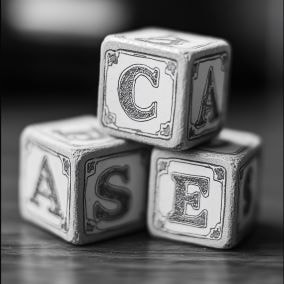
Building a Strong Case
Building a strong personal injury case requires a thorough investigation, gathering of evidence, and a clear understanding of the applicable law. Here are some key factors to consider when building a strong case:
- Clear-cut liability: The defendant’s fault must be clear and unequivocal.
- Prompt medical care: The plaintiff must seek medical attention promptly to document their injuries and establish a clear link between the injury and the defendant’s actions.
- Compelling witnesses and evidence: The plaintiff must gather credible witnesses and evidence to support their claim, including medical records, police reports, and photographs.
- A consistent story: The plaintiff must maintain a consistent account of the events leading up to the injury to avoid contradicting themselves and undermining their credibility.
- A thorough demand for damages: The plaintiff must make a comprehensive demand for damages, including medical expenses, lost wages, and pain and suffering.
Calculating Compensation
Calculating compensation for a personal injury claim for purposes of settlement negotiations involves determining the extent of the damages. The injured party can recover damages for:
- Medical expenses: Past and future medical bills, including hospital stays, surgeries, and rehabilitation.
- Lost wages: Lost income due to the injury, including past and future lost wages.
- Pain and suffering: Compensation for physical and emotional pain, including anxiety, depression, and post-traumatic stress disorder (PTSD).
- Other related losses: Compensation for other related losses, such as loss of enjoyment of life and loss of consortium.
If you’ve been injured as a result of someone else’s negligence, it’s important to consult with an experienced personal injury attorney to determine the value of their claim and negotiate with the insurance company or liable party. An attorney can help you understand the full extent of your damages and ensure you receive fair compensation for your injuries.

Auto Accidents and Personal Injury
If you’ve been in an auto accident, our team will look for the following to assess the claim:
- Were you injured? Sometimes people have been involved in auto accidents but really just want help with recovering property damage. We do help our injured clients get their property damage claims resolved, but frequently we aren’t able to take on a case where the victim isn’t injured. If you have any doubt about who was at fault, give us a call. We’d be happy to help you evaluate it.
- Was the accident someone else’s fault? If you were at fault in a one car crash, there may not be much we can do to help you. We might be able to give you a little advice about getting your car fixed or getting your health insurance to pay your medical bills. But, if someone else was at fault in causing the accident, there is a better chance that our team can help you recover. In either case, our attorneys are happy to evaluate your claim and let you know if we can help. If the accident was someone else’s fault, you might need to file a personal injury lawsuit to seek compensation. An insurance adjuster will likely be involved in assessing the damages and determining the compensation you may receive.
- Does the party who caused the accident have auto insurance? If not, do you have auto insurance? If the answer is yes to either of those questions, there is a good chance that we may be able to help you with your claim.
Workers’ Compensation Claims
Were you injured while doing your normal work for your employer, resulting in a workplace injury? If yes, you might have a workers’ compensation claim
, and you’ll want to have a lawyer experienced in workers’ compensation evaluate your case. Workers’ compensation claims can also cover personal injuries resulting from intentional acts by the employer or co-workers.
Did you seek medical treatment for your injury? If you received medical treatment for your work injury, there is a good chance that you will need some legal advice about how to file and pursue a workers’ compensation claim.
Disability Claims
Have you been denied disability benefits? If so, your disability claim might be ready for action. You should talk with a lawyer who is experienced in handling disability claims for further evaluation of your case. In cases where a disability claim arises from a fatal accident, the family of the deceased may need to file wrongful death claims to seek compensation.
Do you need help filing your claim? If you are in the beginning stages of filing for disability and are struggling to figure out the next steps, we might be able to help you. One of our attorneys would be happy to review your case to determine whether we can assist.
Working with a Personal Injury Lawyer
Working with a personal injury lawyer can be beneficial in many ways. Here are some benefits of hiring a lawyer:
Benefits of Hiring a Personal Injury Lawyer
- Increased compensation: A lawyer can help the plaintiff secure a higher settlement or award.
- Reduced stress: A lawyer can handle the legal aspects of the case, allowing the plaintiff to focus on their recovery.
- Improved outcomes: A lawyer can help the plaintiff achieve a more favorable outcome, including a faster resolution and a higher settlement.
- Protection of rights: A lawyer can protect the plaintiff’s rights and ensure that they are treated fairly throughout the legal process.
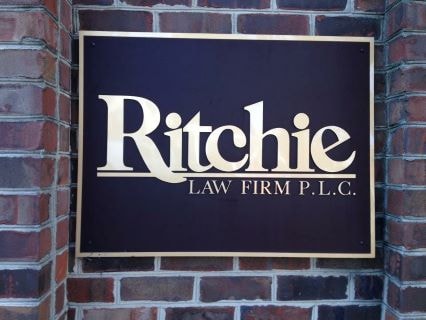
Questions To Ask When Choosing A Lawyer
Check out the internet for lawyers who specialize in personal injury cases. A lawyer who specializes in personal injury is generally going to be a better option for you than a “jack of all trades.” These types of law firms are basically telling you that they are basically “average at everything.” Choosing a specialized lawyer ensures you receive the best legal representation for your personal injury case. Personal injury lawsuits can be complex, and having a specialized lawyer can make a significant difference in the outcome.
Narrow your choices to a couple of attorneys and ask them these questions:
a) How long have you been in practice?
b) Do you have actual experience handling personal injury (or your type) cases?
c) Can I read about your track record of successes in personal injury cases?
d) Have you published any books or guides for consumers? (Check out our team’s injury and disability books here)
e) Are you board certified?*
f) Are you listed in SuperLawyers?**
g) What is your Martindale-Hubbell rating?***
h) Do you spend at least 80% of your time representing individuals against insurance companies in injury, disability, and malpractice cases?
A Final Word
One last important piece of advice. . . You should be careful of some of those 1-800-LAWYER type phone numbers. In some instances, people who call those numbers are routed through a call center which randomly sends your call to the next attorney in line. You may think you’re calling one lawyer when in fact you are routing to another.
If you’ve been injured in an accident, the Ritchie Law Firm is your wall of defense. We have a proven track record of success and have been certified as well as highly ranked and rated by the above listed agencies. Talk to us and ask us what we bring to your case that other lawyers do not.
There is absolutely no charge to talk to a lawyer. If you decide you’d like our help, we don’t charge a fee unless we win your case. Our team is here to provide you with the best legal advice to ensure you get the compensation you deserve.
Don’t Get Hurt Twice!
You can talk to us for FREE – free consultation
Call today 540-388-0533, fill out the form below or
download our free e-book here
540-388-0533
Ritchie Law Firm is a Virginia and West Virginia serious injuries lawyer and car accident attorney law firm devoted to helping individuals who have suffered serious and catastrophic injuries or lost a loved one as a result of someone else’s negligence, including Virginia premises liability cases. The personal injury lawyers at the Ritchie Law Firm offers legal representation to all of Virginia, while helping clients in cities and surrounding areas of Harrisonburg, Charlottesville, Staunton, and Winchester also serves clients in West Virginia, including Martinsburg, WV.

